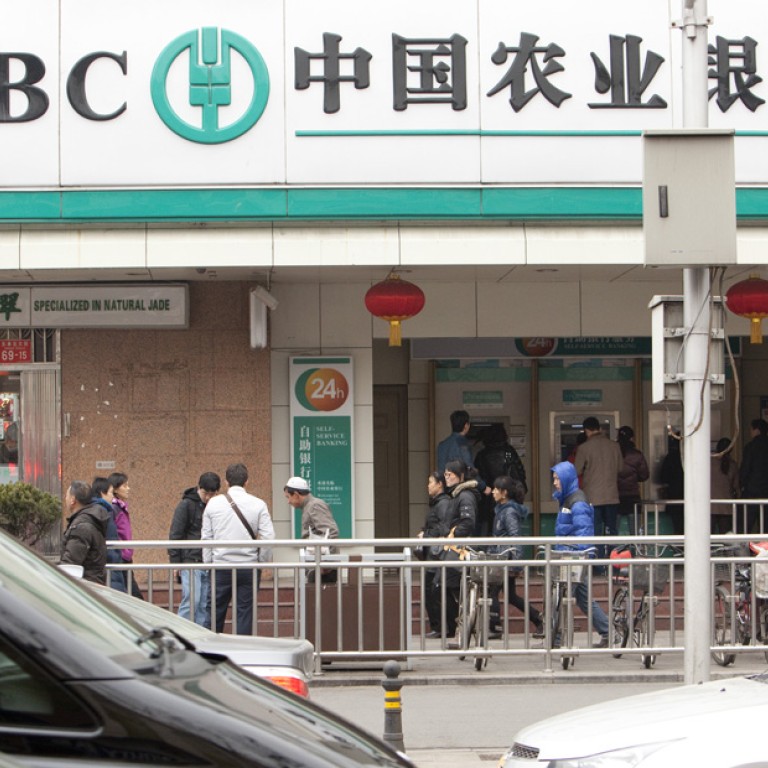
Small China banks envy big lenders' Hong Kong listings, move to emulate them
Sovereign wealth funds racing to take role as cornerstone investors before share sales amid concern over the asset quality of the banks
It is an all-too-familiar tale. A few big players in the mainland's banking sector reap the rewards of operating in an oligopoly until their success attracts attention from rivals.

Among those that may list are Huishang Bank of Hefei, Anhui province, and Bank of Chongqing. They are now concentrating on managing their bad loans as they prepare their initial public offerings.
The preparation for listing ensures that the managers of the small lenders, many of whom simultaneously hold various positions in the Communist Party, focus on commercial performance.
Managers understand that if they wish to take their companies public, they must subject themselves and their corporate decisions to the scrutiny of regulators, analysts and shareholders.
A case in point was the dual listing in Shanghai and Hong Kong in 2010 of Agricultural Bank of China. About two years before the listing of the bank, one of the Big Four state-owned commercial lenders, it received a US$19 billion capital injection from Central Huijin Investment, a unit of sovereign wealth fund China Investment Corp, to clean up its non-performing loans and raise its capital adequacy ratio before shares were offered to foreign investors.

There are more than 100 banks acting as go-betweens for depositors and borrowers on the mainland. The listing plans of some of the smaller ones are also paving the way for more mergers and acquisitions within the antiquated financial system, since many are cash-strapped and vulnerable to external shocks as they rely heavily on the volatile and expensive interbank market for borrowings.
The cash crunch in June pushed such short-term borrowings to record high levels and raised rumours of financial institutions defaulting on their obligations. Banks became wary of lending to each other as the central bank reshaped the interbank market into a more market-driven model.
In the scrutiny that followed, Shanghai-listed China Everbright Bank, the Beijing-based lender that has - for the third time - halted its Hong Kong listing plan, denied that it had failed to repay a 6 billion yuan interbank loan.
The bank's shares have fallen more than 10 per cent this year after sister firm Everbright Securities was involved in a series of trading scandals. The most recent mishap, which caused chaos in the Shanghai market last month, resulted in a record 523 million yuan fine.
The big picture is even more intriguing considering that some big foreign banks have already completed their sell-downs in large state-controlled banks and redeployed their capital into "counter-cyclical" business, including some pre-IPO stakes in Cinda and Huarong - two of the four asset management companies set up in 1999 to handle the bad loans of the Big Four lenders.
It is now understood that Chinese sovereign wealth funds are hastening to invest before any IPO to become the small lenders' so-called cornerstone investors. Investor concern over the banks' ability to manage deteriorating asset quality amid lax risk controls is what prompted that move.
So, how will it all play out? The sure thing is that any money-making business can expect foreign players to offer their expertise in exchange for access to the mainland's highly protected financial market.

